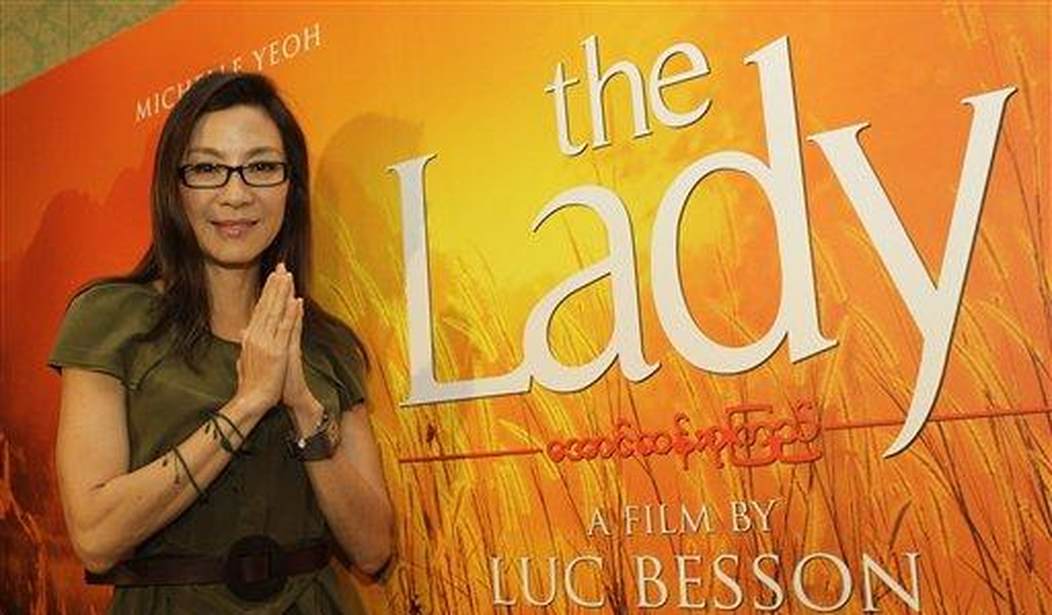Now we sit back and watch as Hollywood looks to use proven failed workplace methods that may violate employment laws.
This weekend, we just wrapped up the Oscars and there was the usual display of virtue signaling and ethnic salutations. It was not enough to celebrate Michelle Yeoh winning for her great acting performance. No, she also was hailed as the first winner who self-identifies as Asian, as asinine a phrase as can be cooked up in order to congratulate yourselves for doing something of significance. Hollywood, it seems, cannot stop itself from focusing on the checkbox demographics at every instance.
Another example is seen in the way Ruth E. Carter was noted with her win Sunday in Best Costuming, for her work designing “Black Panther: Wakanda Forever.” As a sign that we will never get away from the perpetual racial recognition at these awards, Carter was praised as the “first black woman to win two Oscars.”
What is hidden within these laudatory achievements is that while praising themselves for the woke recognition, Hollywood is also revealing its own history of intolerance. Really, you all are just now getting around to handing out awards to black females? When you rave about Michelle Yeoh being the “first” Asian actress you are also admitting that for nearly a century, Hollywood never managed to recognize Asians in this fashion.
The reason for the mind-melting description of Ms. Yeoh is that there were previous Oscar-caliber actresses who were Asian. Merle Oberon was nominated in 1935, and Vivian Leigh was a two-time winner, but both women hid their heritage in an effort to not have that reality impact their opportunity at earning roles. That should come as an indication of how restrictive and downright racist the studio system has been for generations. Yet all the while, these same elites are perfectly comfortable lecturing the rest of the country on its inherent intolerance and systemic racism.
Quietly, Hollywood knows it has this problem, and we see it in the way they have been scrambling to fix it in recent years. After revamping its membership guidelines to bolster the numbers of females and those from POC groups, a new policy is being put into place by the Academy of Motion Picture Arts and Sciences (the outfit that puts on The Oscars) for future film consideration. This policy, when looked at earnestly, could create a minefield of issues on par with what is depicted in a war epic.
Initially begun in portions since 2021, the Academy’s solution is dubbed Representation and Inclusion Standards for Eligibility (RAISE), and it will be taking full effect for all films to be considered by next year’s awards season. This is essentially Hollywood’s DEI program, and it is relying on some methods seen in the past with Affirmative Action. That these two proven problematic policies are a basis should be all you need to see there will be issues.
When the new rules go into effect for next year’s Oscars, they will require that a film meet two of four inclusion standards to be eligible for best picture (see right). A film could meet the onscreen standard, for instance, by having one of its lead or supporting actors come from an underrepresented racial or ethnic group or by having a storyline centered on an under-represented group, including women, LGBTQ people and people with disabilities. It could meet the industry access and opportunity standard by offering a paid internship and below-the-line training opportunities for people from underrepresented groups.
The main problem here is that producers are not only the financial backers and motivational force of a film, they are also the employers. As such they are held to labor laws and standards. Some of the requirements that are being imposed on movies by the Academy would require productions to violate some existing legislation. One director the Hollywood Reporter interviewed spoke about this challenge.
Last fall, an independent filmmaker was filling out an online form to put forward his movie for Oscar consideration when some questions on the Academy’s submissions site caught him off guard. The site asked about his cast and crewmembers’ race, gender and sexual orientations, and had some questions about their health — whether they had autism, for instance, or dealt with chronic pain or mental illness. “I don’t know, maybe someone on my crew was neurodivergent,” this filmmaker says. “It’s not my place to ask. Did they do their job? Great. And how are we going to know who’s gay when it’s illegal to ask people?”
Making this all the more problematic is the seeming inability of The Academy to learn from the mistakes of others. Affirmative Action has long been a contentious standard from which many workplaces have veered away. DEI has been shown to be a failing policy, and now more entities are dropping the mandates from that framework. Then, there is this dose of amusement: “In the RAISE forms the standards are modeled after the British Film Institute’s diversity standards used to determine some U.K. funding eligibility and some BAFTA categories.”
Uh, yeah — you might want to revisit this concept. There was a bit of a furor over the British Film and TV awards last month when, after imposing new inclusivity standards on their operations, almost all of the winners were white. Only two of the 49 people receiving trophies were considered ethnic, and they were white Hispanics.
FYI, On the all white winners at the Baftas.@KaiseratCBhttps://t.co/KTyiieA4eV
— Tennyson.Sarah, Brazen Hussy (@tennysonsarah1) February 20, 2023














Join the conversation as a VIP Member